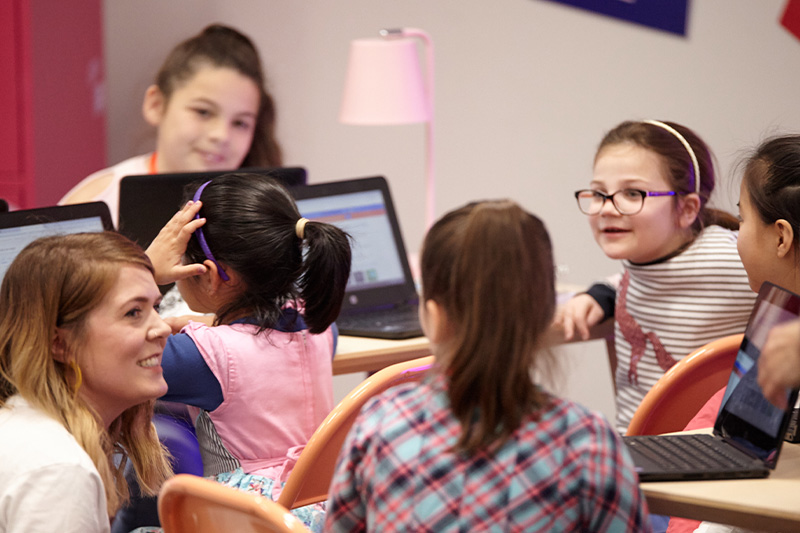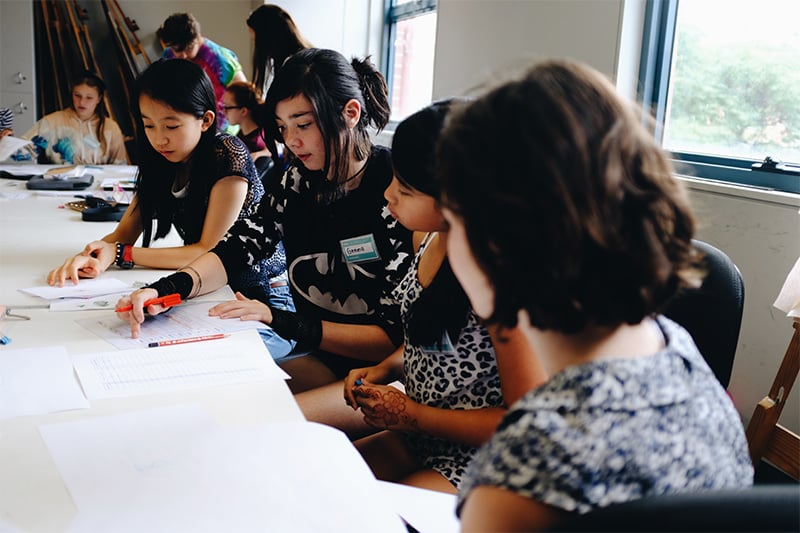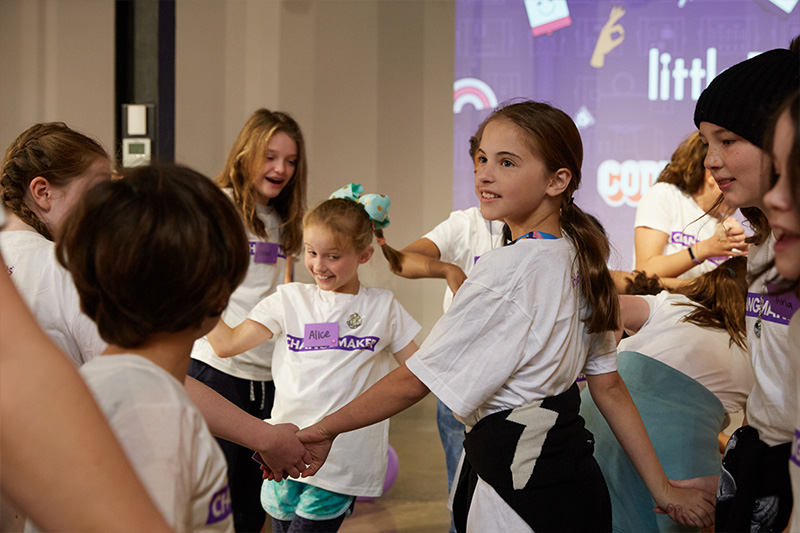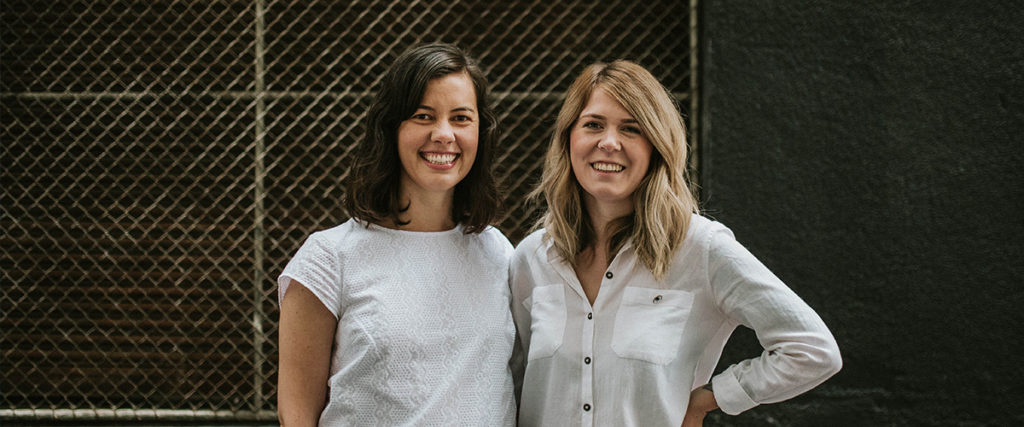The proportion of tech roles filled by women has been shrinking. Code Like a Girl, a 3-year-old Australian EdTech startup wants to reverse this trend with their roaming coding classroom, converting young girls into future tech leaders.
The tech industry prides itself as on being a pioneer that ushers in social progress. However, in certain spheres, the opposite is true – most notably with gender equality. According to Quartz, less than 25% of the IT jobs in Silicon Valley are held by women. In Australia, the same rings true. “We’ve seen a 70% growth in jobs in Information and Communications Technology (ICT) since 1996, but women only make up about 16% of ICT roles in Australia,” says Josephine Colson of Melbourne-based startup Code Like a Girl. With their tech-education platform and bright pink, roaming classroom trailer, it’s stats like these her team are determined to overturn.

It’s no secret that being a female in the tech industry can be a struggle. “Anytime you’re an ‘other,’ there are challenges, and it’s especially true in tech, an industry where you need to be able to prove yourself quickly,” shares the Chief Marketing Officer, who speaks from experience having worked at three tech startups prior to joining Code Like A Girl. Ally Watson, the company’s co-founder, had similar stories of trying to integrate into what seemed like a closed-off world.
It was in the hope of connecting with other women in her field that Ally set out to organise the casual meet-ups from which the idea of Code Like A Girl then formed. Overwhelmed with the positive response to her get-togethers, it soon became obvious that many others share her frustrations. “It’s a problem so deeply rooted in the ecosystem that needs to be addressed,” explains Josie. To do that, Code Like a Girl decided to grapple the issue at its roots – with education. According to the Guardian, research shows that fewer girls than boys choose to study STEM subjects at school and university. A pipeline problem due to a lack of interest in the subjects among girls is one palpable reason for this, but Josie argues that a lack of female representation in the industry perpetuates the gender imbalance.

“You can’t be what you can’t see,” Josie pinpoints. “You can’t expect a five-year-old to say, ‘I can do it’ when there are hardly any female role models in the field that they can look up to. We’ve been struggling to get women into the industry. And, even if more women do go into the field, they end up feeling isolated when they get there.” she explains. “Women stay in the industry for an average of only 15 years before they’re fed up with the situation.”
It’s in answer to all these questions that Ally founded her social enterprise Code Like A Girl with her friend and colleague Vanessa Doake in 2015. Starting as a series of get-togethers, it has since evolved into a multifaceted initiative that covers everything from networking events to advanced studies, coding boot camps to internships, all of which exist “to liberate women and girls with a passion for coding by creating a space where they can grow and believe in their own capability.”

“We’re putting trailblazing women in tech in front of our big events,” says Josie. “On a micro level, we want to put women who are already in the industry, the everyday heroes, in front of young girls.” They purposefully include women from different socio-economic backgrounds and marginalised groups in these speakers — a component that is often left out in the dialogue on gender equality in tech. To this end, in 2018, Code Like A Girl also launched a roaming classroom project in collaboration with Toyota to bring coding knowledge to underprivileged communities with a stickered pink trailer. “We want to reach out to rural areas, to the working mums and kids who can’t afford to commute for hours into the city for a coding class,” explains Josie.
To date, that pink trailer has served over three thousand girls around Australia. But Code Like A Girl’s ambitions don’t stop there. Next, they want to build a network to empower all women and girls who aspire to careers in tech via a membership portal. “It’s going to provide ongoing learning for women at all levels, in Australia and overseas. Hopefully, it can break down the barriers, whether those be a hectic schedule or geographical constraints,“ Josie explains. “We want to convert our girls into the future force in the industry.“
Change takes time to happen. But, given the current global microscope on gender equality, Josephine sees now as a moment of great opportunity. “The first step to solving a problem is admitting it exists, right?” she laughs. And, once you’ve done that, you need to heap on the drive. “Passion is the foundation on which you root yourself as you weather hard times in an industry. And that same passion will pull other women with you along the way.”





